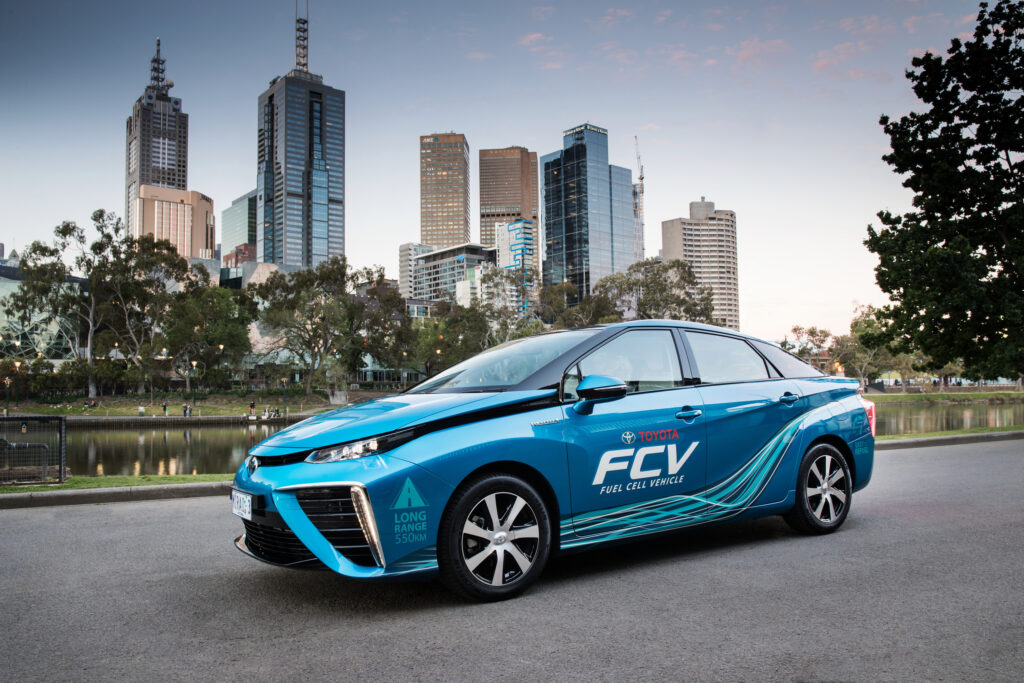Toyota doubles down on fuel cells
- PostedPublished 9 September 2018
TOYOTA is forecasting substantial growth in the fuel cell electric vehicle (FCEV) market and, as a result, is set to expand its hydrogen hardware production facilities.
Currently, Toyota sells 3000 FCEVs a year but, by 2020, it expects that figure to have climbed to in excess of 30,000 – because, in part, it plans to market its FCEV Mirai in several new countries, including Australia and China.
To help it achieve these targets, the company has revealed two new facilities that will allow it to produce FCEVs in greater numbers. The first is a new fuel cell stack plant, which will be based in an eight-story building at the company’s Honsha plant.
The other new facility is a dedicated production line for high-pressure hydrogen tanks, which will be located inside the nearby Shimoyama Plant in Miyoshi City. Both of these new facilities are expected to be in operation by 2020, in order to help Toyota attain its goals.

Hydrogen fuel cell-powered vehicles have yet to make a major mark in the automotive sector, in part due to the lack of refuelling infrastructure. The technology is not without its merits, though; unlike the batteries in electric cars, the performance of fuel cells does not degrade noticeably in hot or cold conditions.
An FCEV can also be refilled comparatively quickly, allowing the owner to continue on their way instead of having to wait for a battery to charge. This may become of further benefit as the number of EVs increase, leading to potential congestion at charging points.
Solid-state tech falls behind at Toyota
LAST year, Toyota suggested it might bring advanced solid-state batteries to market by the first half of 2020.
Shinzuo Abe, the general manager of Toyota’s powertrain division, has now indicated that 2030 would be a more realistic target for mass production of the new batteries.
Speaking in an interview with WardsAuto, Abe said: “We will begin with small-lot and trial production. We would never experiment on customers. Like you said, 2030 might be a more realistic timeframe.”
The new battery technology focuses on the use of solid electrolytes that offer a higher energy density than current liquid or polymer-based lithium cells. They are also reputed to run cooler, be more resistant to damage and can be charged far more quickly – and they also don’t suffer as much from repeated fast charging and discharging.
Abe added: “We believe that for EVs to gain wide market acceptance, we need epoch-making batteries like the ones we’ve been talking about.”
Toyota has also teamed up with companies including Nissan, Honda and Panasonic in a collaboration called ‘Libtec’, backed by Japan’s Ministry of Economy, Trade and industry, to speed the development of solid-state batteries.
These companies are not alone in exploring solid-state technology, though. Both BMW and Hyundai, for example, have invested in developing the new batteries for production purposes.
Revived brand Fisker is also claimed to be working on the technology. It states that it will have production cells ready for market as early as 2020, potentially making it the first company to offer solid-state batteries.
- CategoriesIn SightGlass
- TagsBatteries, battery, fuel cell, hydrogen fuel cell, SightGlass News Issue 14, solid-state battery, Toyota

